STATEHOUSE REPORT | ISSUE 19.49 | DEC. 4, 2020
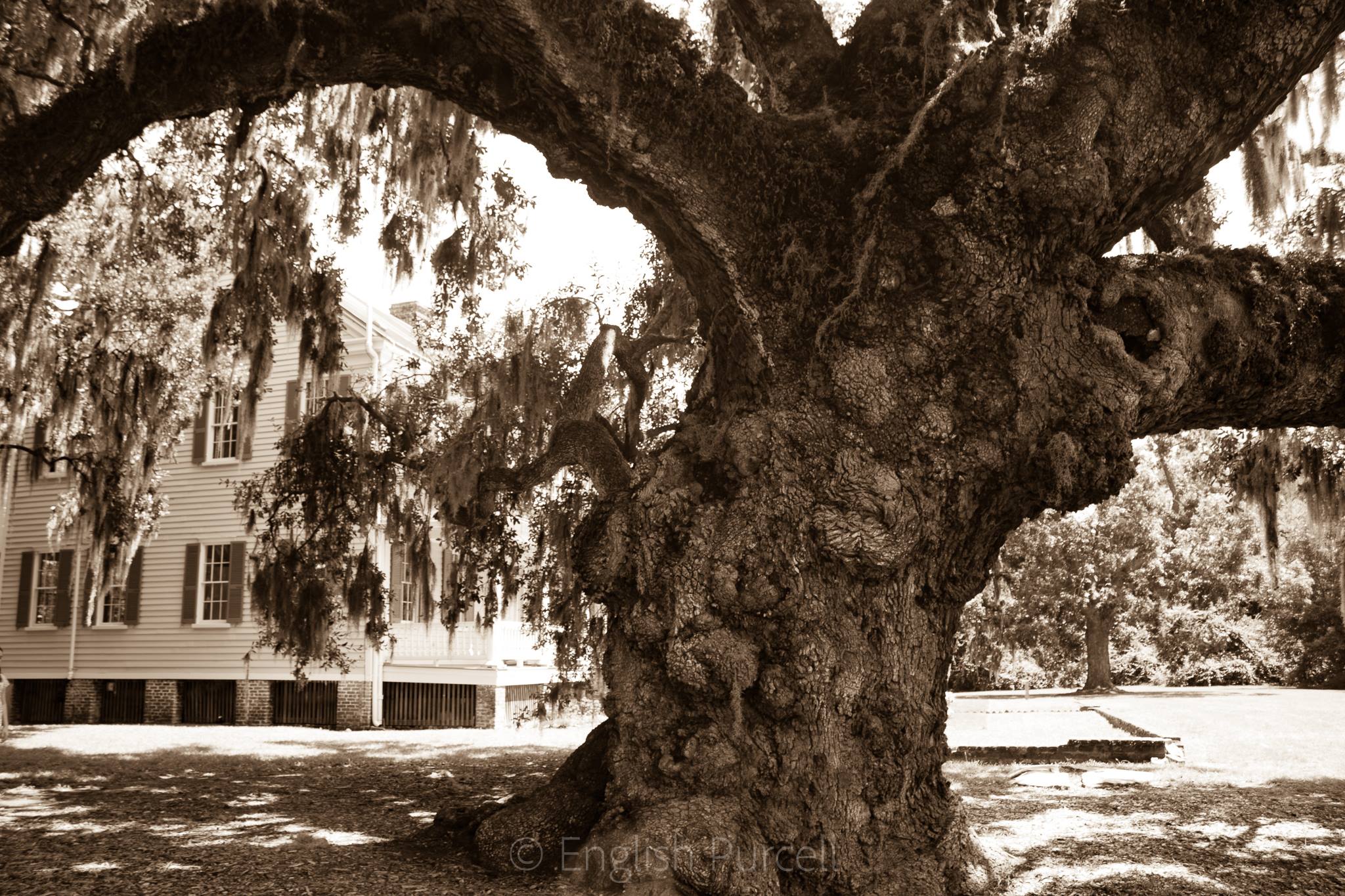
GNARLY. You can bet this gnarly live oak tree at McLeod Plantation Historic Site in Charleston County would tell a lot of stories — if it could speak. You can see more photos in Charleston photographer English Purcell’s “A study in black and white” in our sister publication, Charleston Currents.
 BIG STORY: S.C. farmers open new markets at home
BIG STORY: S.C. farmers open new markets at home
NEWS BRIEFS: State chamber urges passage of hate crimes legislation
LOWCOUNTRY, Ariail: Good news and bad news about vaccine
COMMENTARY, Brack: Legislature needs to wake up on environment
SPOTLIGHT: AT&T
FEEDBACK: Send us your thoughts and comments
MYSTERY PHOTO: Old stone cabin
S.C. farmers open new markets at home
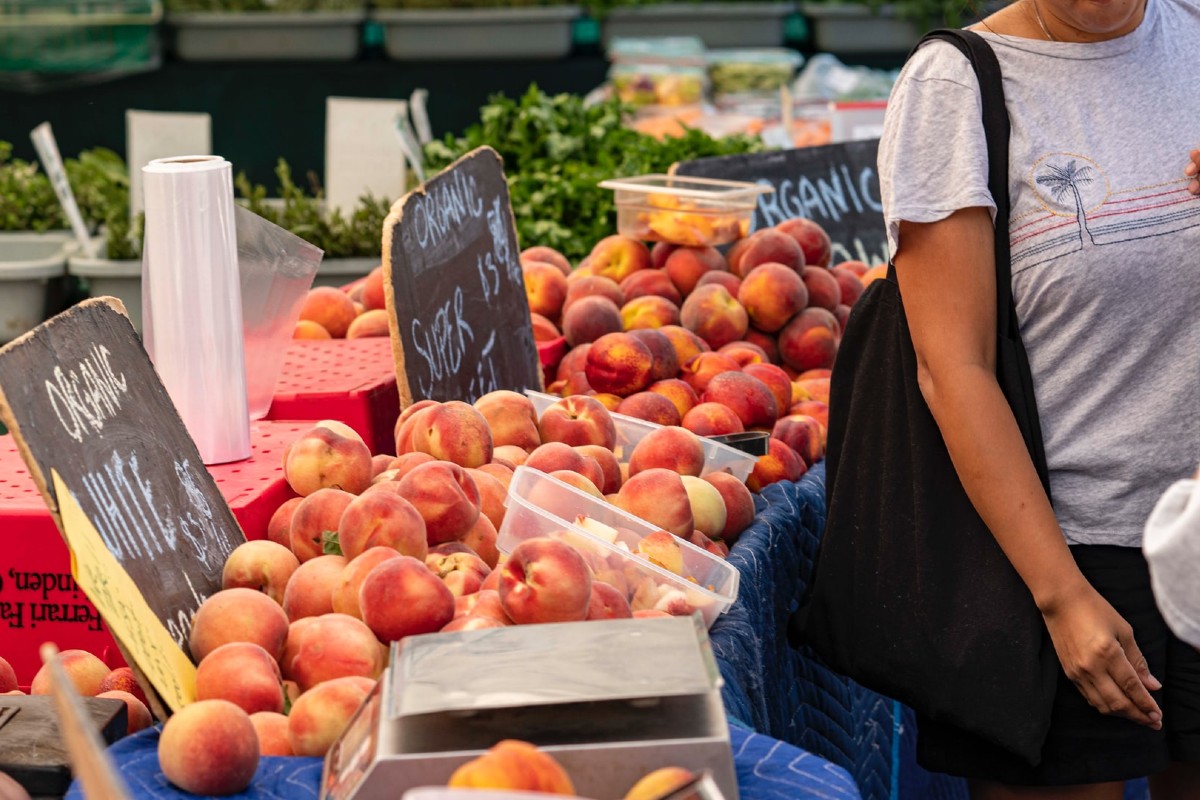
By Gregg Bragg, special to Statehouse Report | One of few bright spots in the pandemic age is the increase in the size and number of new farmers markets all over the state, according to the state Department of Agriculture.
“We’re seeing them everywhere — beside freeways, on off ramps, country roads and city streets,” said Eva Moore, the agency’s communications director. “Anywhere there’s room close to a farm. ”
She and coworkers are hearing that business is booming at local markets. Success is coming despite closures and limits on the restaurants that farmers usually rely heavily on to buy their products.
Many farmers markets once relied mostly on word-of-mouth advertising and street traffic, but have turned to social media to enhance sales, according to the Wadmalaw Island History And Happenings Facebook page. A farmers market on Wadmalaw Island, for example, is now distributing a list of 60 vendors over Facebook.
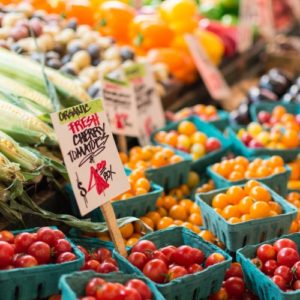 Visiting these markets provides an almost carnival atmosphere. Because they are outside, customers can socially distance more easily while supporting their agribusiness and crafting neighbors.
Visiting these markets provides an almost carnival atmosphere. Because they are outside, customers can socially distance more easily while supporting their agribusiness and crafting neighbors.
Asked if resurgent demand from restaurants as they return to “normal” would derail the burgeoning farmers markets, Moore said she hoped that wasn’t the case and thinks the rise in farmers markets could be a windfall for S.C. growers she thinks will remain for the long term.
“Farmers want sales, not aid, right? We all hope that the [government’s] coronavirus aid payments will not be necessary in 2021,” she said. “We haven’t asked the feds to extend these programs, but as they see further need, they may make more funds available.”
Moore said the markets also are helping consumers become aware of what local growers can produce.
“I think that when people know more than ever that there are farmers in their community growing things they like, they’ll ask for it,” she said. “Chefs know that. They have relationships with farmers. I think it’s all going to be helpful economically.
“We know that our ‘Certified South Carolina Program’ has increased the percentage of local produce South Carolinians are buying, since it’s been around. All of those are going to work together to keep South Carolina farmers in business, and hopefully make 2021 a good year.
More is on minds of farmers, too
It isn’t just the pandemic weighing on farmers. Disastrous weather trends and a trade war with China started by Washington politicians isn’t helping.
“[The past five years have] been a tough time, but I think the [recent] phase one trade discussions with China have laid the groundwork for future recovery,” said Moore. Several programs have helped farmers, such as the ‘Farmers to Families Food Box’ program, are putting produce directly in the hands of people who need it nationwide. Food banks have also benefited from the excess produce with assistance and funding from the U.S. Department of Agriculture. Moore said South Carolina has made similar moves, and used donations to her agency to buy produce from farmers, which helps keep them afloat.
Stephanie Sox, communications director for the S.C. Farm Bureau, said Palmetto State farmers didn’t want government handouts.
But two relief packages intended to help SC farmers through the COVID-19 pandemic arrived just in time because of adverse conditions, such as a 2015 flood and the trade war, that have been worsening over the last five years.
Some 3,200 growers received $33.6 million in the first round of The Coronavirus Food Assistance Program, she said. Another $41.8 million is being distributed to more than 3,500 growers by mid-month, she added.
“While these programs have helped, they certainly have not made up for the reduction we have seen in farm income in the last five years,” Sox said. “Farm income has been reduced by half and they have not seen the same reduction in their input costs. So it’s costing as much or more to continue to operate.”
Impact of the trade deal on South Carolina farmers
Adam J. Kantrovich, a Clemson University Extension associate professor, told Statehouse Report that South Carolina should take news of China’s ability to meet the terms of the Trump Administration’s recent ‘trade deal’ with a grain of salt. Details of his assessment are available here: https://www.farmers.gov/cfap/data.
Kantrovich said China was supposed to purchase a combination of specific and miscellaneous farm products from American farmers totaling $37 billion in 2020. That number is to increase to $44 billion in 2021.
Although there is a caveat in the agreement that allows China to average the amounts they’re to spend over two years, he said neither seems likely to happen based on what he’s found so far.
“They have never purchased the amount that is stated in the agreement. Even if you were to add in Hong Kong and include all of the agricultural and timber products, ethanol, spirits, processed foods, et cetera,. they are still not even close,” he said.
- Gregg Bragg is a freelance reporter who lives on Johns Island.
- Have a comment? Send to: feedback@statehousereport.com
State chamber urges passage of hate crimes legislation

Staff reports | Long-ignored proposals for South Carolina legislators to pass a law making hate crimes illegal got a big boost this week when the S.C. Chamber of Commerce called on the General Assembly and Gov. Henry McMaster to pass and sign such a bill.
“The events we’ve seen across the country over the last year have reinforced that we have much to do as a society to fight racism and injustice,” said Tim Arnold, the chamber’s current chair who also is president and CEO of Colonial Life. “Passing a hate crimes law in South Carolina is one more step we can take to show the nation that our great state will not tolerate crimes motivated by hate of a person because of their race, religion or ethnicity.”
Currently, South Carolina is one of three states without a comprehensive bill against hate crimes. A chamber letter to policymakers was signed by more than 80 businesses and urged passage to “show that S.C. is not a place that condones crimes motivated by hate,” according to a press release. Arkansas and Wyoming don’t have hate crimes protections. Georgia passed a law in June.
- Read our previous coverage on a citizen coalition that is rallying for the law, too.
“The time has come to pass a hate crimes bill this coming session,” said S.C. Chamber of Commerce President and CEO Ted Pitts. “The state’s business community looks forward to working with the House, the Senate and the governor to quickly pass a meaningful bill that shows South Carolina does not condone crimes motivated by hate.”
Also in recent news:
![]() State says it’s ready for vaccines as cases spike. South Carolina’s immunization director, Stephen White, said he anticipates the state receiving its first shipments of Pfizer’s COVID-19 vaccine by mid-December, but officials are not releasing estimates of how many doses will be received. The first doses will go to frontline health care workers and nursing home residents. Meanwhile, coronavirus cases seem to be spiking in South Carolina. State officials announced Thursday that 1,754 new confirmed coronavirus cases and 21 reported deaths. Of those getting tested for the disease, 23.8% are positive. More.
State says it’s ready for vaccines as cases spike. South Carolina’s immunization director, Stephen White, said he anticipates the state receiving its first shipments of Pfizer’s COVID-19 vaccine by mid-December, but officials are not releasing estimates of how many doses will be received. The first doses will go to frontline health care workers and nursing home residents. Meanwhile, coronavirus cases seem to be spiking in South Carolina. State officials announced Thursday that 1,754 new confirmed coronavirus cases and 21 reported deaths. Of those getting tested for the disease, 23.8% are positive. More.
Lawmaker test positive for COVID-19. An unnamed lawmaker tested positive for coronavirus after attending an S.C. House organizational session this week, according to this story. A memo from House Speaker Jay Lucas’ office “said that anyone who had had close contact with the infected person had been asked to quarantine for the time period recommended by the Centers for Disease Control and Prevention,” The State newspaper reported. In a separate Lancaster News story, a different House member, freshman Rep. Sandy McGarry, watched the session live after testing positive before the organizational session. House members were offered rapid COVID-19 tests at the session.
S.C. House reorganizes. The state House convened briefly this week to reinstall many of the same heads of committees following the November election. Sumter Republican Rep. Murrell Smith will return to head the House Ways and Means Committee. He said the 2021-22 budget will face a tough year. One big change was the leader of the House Judiciary Committee. The past chair, former Charleston Republican Rep. Peter McCoy, left his House seat to become U.S. Attorney for South Carolina. Summerville Republican Rep. Chris Murphy, also a lawyer, was tapped to replace McCoy. More.
Legislation pre-filing starts next week. Members of the S.C. House and S.C. Senate will be able to pre-file legislation for the 2021 session on Dec. 9. House members also will be able to submit new bills on Dec. 16. Because the two-year session begins anew in 2021, any legislation unapproved in 2020 must be resubmitted. More.
S.C. chief justice closes all state jury trials. S.C. Supreme Court Chief Justice Donald W. Beatty has ruled temporary closure of all state jury trials due to the rise in coronavirus cases. More.
Thousands in S.C. still receiving federal jobless benefits. About 179,000 South Carolinians were filing jobless claims with the S.C. Department of Employment and Workforce in the middle of November. More. Some jobless benefits will expire Dec. 12.
SCANA, Dominion agree to pay $25 million in nuclear fraud case. SCANA and the company that purchased it, Dominion Energy, have reached an agreement to pay a $25 million civil fine to the federal Securities and Exchange Commission in one of the state’s largest civil fraud cases, according to public court records filed Wednesday in U.S. District Court. More.
- Have a comment? Send to: feedback@statehousereport.com
Good news and bad news about vaccine

Enjoy this week’s cartoon by Robert Ariail, republished from our sister newspaper, the Charleston City Paper. Love it? Hate it? What do you think: feedback@statehousereport.com.
Legislature needs to wake up on environment
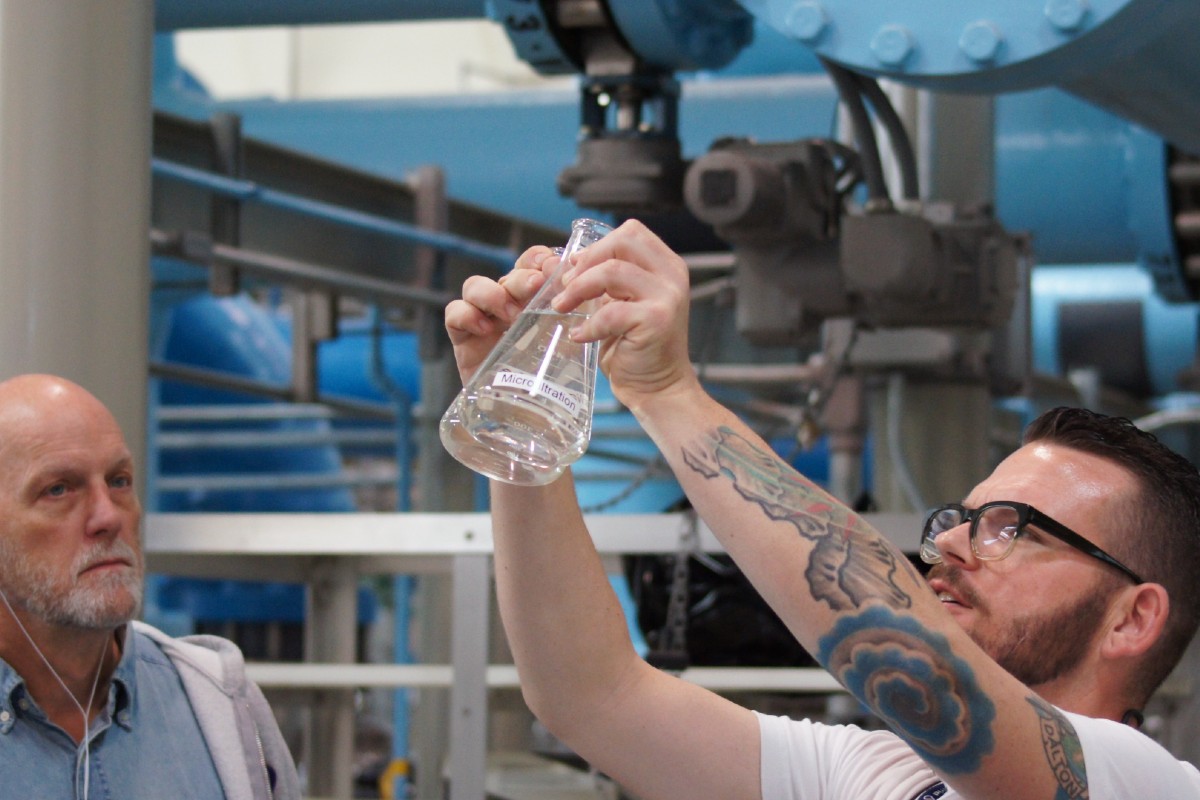
By Andy Brack, editor and publisher | About a dozen years ago, a think tank challenged Southern legislators to engage on multiple environmental challenges.
 Unsurprisingly, they mostly just nibbled around the edges, tweaking this and slapping putty on that. They haven’t confronted climate change seriously or done much to truly embrace renewable energy. Seeking environmental justice for the downtrodden is mostly just a good idea – still. Preserving land and cleaning up pollution get a lot of lip service. In the years since the book, other challenges have emerged — flooding, infrastructure, old dams — but they never get the priority they deserve.
Unsurprisingly, they mostly just nibbled around the edges, tweaking this and slapping putty on that. They haven’t confronted climate change seriously or done much to truly embrace renewable energy. Seeking environmental justice for the downtrodden is mostly just a good idea – still. Preserving land and cleaning up pollution get a lot of lip service. In the years since the book, other challenges have emerged — flooding, infrastructure, old dams — but they never get the priority they deserve.
It’s past time for the Palmetto State to step up to the plate and do more to protect her environment and special places. Just as the National Wildlife Federation’s Collin O’Mara says Congress needs a bold blueprint in 2021, the South Carolina General Assembly must start doing some measurable, real things to deal effectively with environmental challenges. No more sweeping things under the rug.
An environmental blueprint for South Carolina
Get rid of coal-fired power plants. There are five of these plants left. While they mostly are used for needs in peak power, they’re dirty and need to be shuttered. Give renewable energy the investment and love it deserves. It’s less expensive to generate over the long haul and it’s a gift that keeps on giving.

“Closing coal plants is one of the top things we can do to reduce carbon emission,” said Alan Hancock of the S.C. Coastal Conservation League. “It’s also important for power bills, public health concerns, environmental justice concerns and for localized air pollution, (reducing) particulate matter, ozone pollution and mercury pollution.”
John Tynan, head of the Conservation Voters of South Carolina, said while moving away from coal-based energy, the state should also “transition to at least 50 percent of (electricity) generation being clean energy in the next 10 to 15 years” and be on a path to 100 percent from renewables over 30 years.
Deal with Santee Cooper. The state-owned utility is again being threatened for sale or some kind of rearranged management deal. State lawmakers have it in their power to keep the utility in state hands but make it work better for everyone. They need to stop kicking the can down the road and give it a chance to clean up its act. Literally. Whatever happens, Hancock said, “We want to ensure there’s some level of Public Service Commission accountability and oversight with the South Carolina General Assembly.”
 Clean up our drinking water. “Forever chemicals” are used in everything from firefighting to making wrinkle-free shirts. Unregulated, they are contaminating local water supplies, particularly in areas where low-income people live because of their proximity to military bases and industrial facilities, said Rep. J.A. Moore, D-North Charleston. He plans to file a bill again to have the state set acceptable levels of contaminants, which will cause local water systems to remove unsafe levels of these chemicals from water. He noted: “Once you start regulating them, it’s just like Pandora’s box … because it will cost billions of dollars to fix.”
Clean up our drinking water. “Forever chemicals” are used in everything from firefighting to making wrinkle-free shirts. Unregulated, they are contaminating local water supplies, particularly in areas where low-income people live because of their proximity to military bases and industrial facilities, said Rep. J.A. Moore, D-North Charleston. He plans to file a bill again to have the state set acceptable levels of contaminants, which will cause local water systems to remove unsafe levels of these chemicals from water. He noted: “Once you start regulating them, it’s just like Pandora’s box … because it will cost billions of dollars to fix.”
Reduce plastic pollution. Here’s a case where the legislature needs to do nothing: Stop considering proposed bans on bans of single-use plastic by local governments. They should be able to get rid of plastic bags if they want, particularly on the coast to help clear it of trash.

Protect more land. The state has a plethora of special places that need to be kept out of the hands of developers. Protecting land also allows areas that are vital for mitigation of flooding and more. There should be “a dramatic increase over time in land protection, supported by both funding increases and innovative policies,” Tynan said. “One bill introduced last session set a goal of protecting 30 percent of the state by 2030.”
Engage on climate change meaningfully. And then there’s the increasing number of headaches caused by failing to manage climate change. Policymakers need to listen to scientists, not the tin hat crowd. Strategies need to be developed and implemented to reduce flooding (not only on the coast) and to boost community resilience.
Make green investments and policies that make a difference. Now is the time.
Andy Brack is editor and publisher of Statehouse Report. His column also is published in the Charleston City Paper, Florence Morning News, Greenwood Index Journal, The (Seneca) Journal, Camden Chronicle Independent and Hartsville Messenger. Have a comment? Send to: feedback@statehousereport.com.
AT&T
 The public spiritedness of our underwriters allows us to bring Statehouse Report to you at no cost. Today’s featured underwriter is AT&T Inc.
The public spiritedness of our underwriters allows us to bring Statehouse Report to you at no cost. Today’s featured underwriter is AT&T Inc.
AT&T Inc. (NYSE:T) helps millions around the globe connect with leading entertainment, mobile, high speed Internet and voice services. We’re the world’s largest provider of pay TV. We have TV customers in the U.S. and 11 Latin American countries. We offer the best global coverage of any U.S. wireless provider*. And we help businesses worldwide serve their customers better with our mobility and highly secure cloud solutions.
- Additional information about AT&T products and services is available at http://about.att.com.
- Follow our news on Twitter at @ATT, on Facebook at http://www.facebook.com/att and YouTube at http://www.youtube.com/att.
* Global coverage claim based on offering discounted voice and data roaming; LTE roaming; voice roaming; and world-capable smartphone and tablets in more countries than any other U.S. based carrier. International service required. Coverage not available in all areas. Coverage may vary per country and be limited/restricted in some countries.
Send us your thoughts
We love hearing from our readers and encourage you to share your opinions. But to be published, you’ve got to provide us with contact information so we can verify your letters. Letters to the editor are published weekly. We reserve the right to edit for length and clarity. Comments are limited to 250 words or less. Please include your name and contact information.
- Send your letters or comments to: feedback@statehousereport.com
Old stone cabin
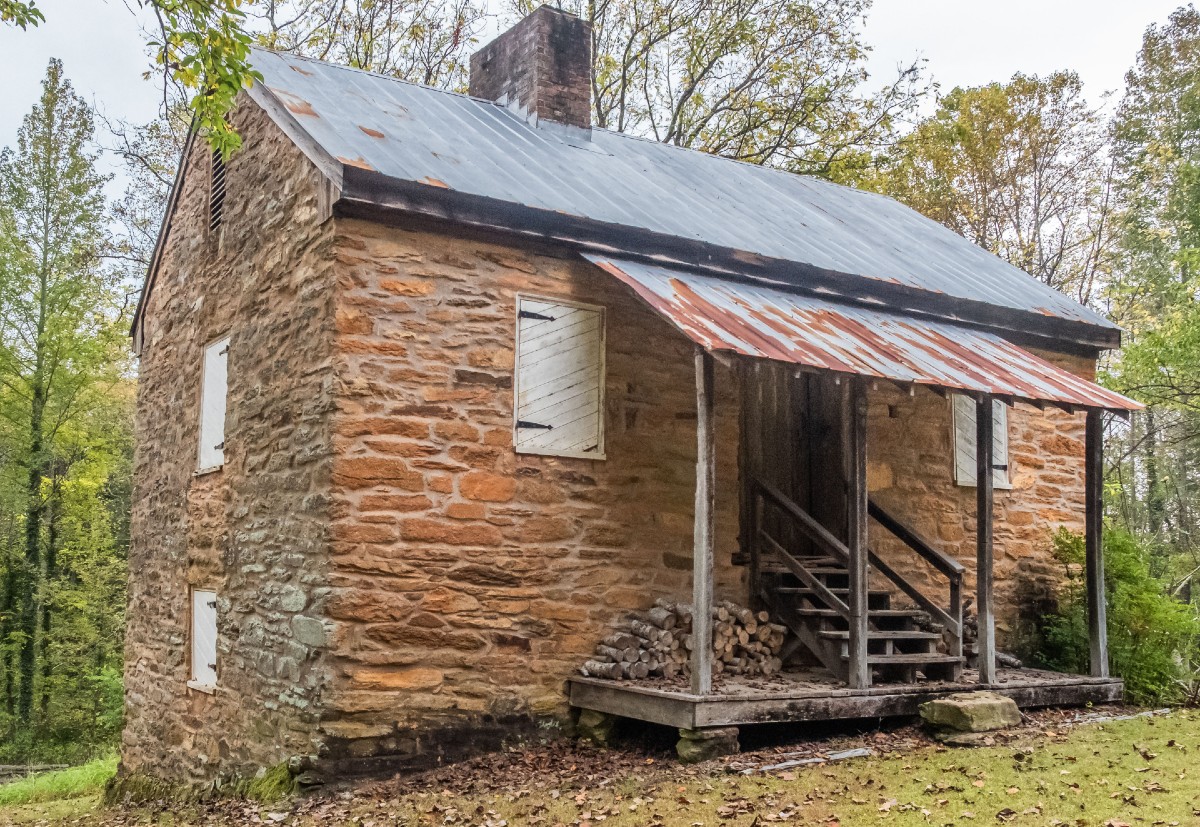
A reader in Alaska sent along the above photo of a stone cabin. It’s somewhere in South Carolina, but where? Give it a good college try. Send your guess to feedback@statehousereport.com. And don’t forget to include your name and the town in which you live.
Our previous Mystery Photo
 Our Nov. 27 photo, “Mystery cabins,” was one of a series of photos snapped by longtime photographer and mystery photo sleuth Bill Segars of Hartsville. It shows the AME Zion Church’s campground, also known as Camp Welfare, in Fairfield County, as described here.
Our Nov. 27 photo, “Mystery cabins,” was one of a series of photos snapped by longtime photographer and mystery photo sleuth Bill Segars of Hartsville. It shows the AME Zion Church’s campground, also known as Camp Welfare, in Fairfield County, as described here.
This photo generated guesses of locations from around the state, with readers speculating that the photo was taken everywhere from Daufuskie Island or Lake Murray to St. George and Santee.
Hats off to those who correctly identified Segars’ photo: Steve Willis of Lancaster; David Lupo of Mount Pleasant; Allan Peel of San Antonio, Texas; Kevin Mertens of Greenville; Frank Bouknight of Summerville; Henry Eldridge of Tega Cay; Jack Anthony Brant of Yemassee; and George Graf of Palmyra, Va.
Peel shared, “According to Wikipedia, it was founded in 1876, just after the American Civil War, by the African Methodist Episcopal Zion Church. It is a collection of approximately 100 one-story, frame, weatherboarded cabins (called ‘tents’) arranged in a double ‘U’-shape. The focal point of the camp is the arbor; a rough, gable roofed wooden shelter with wooden benches. Also located at the camp is Zion Church; a frame building with a gable roof surmounted by a belfry built around 1930. Camp Welfare was added to the National Register of Historic Places in 1984.”
- Send us a mystery: If you have a photo that you believe will stump readers, send it along (but make sure to tell us what it is because it may stump us too!) Send to: feedback@statehousereport.com and mark it as a photo submission. Thanks.
ORDER NOW: Copies are in Lowcountry-area bookstores now, but if you can’t swing by, you can order a copy online today.
ABOUT STATEHOUSE REPORT
Statehouse Report, founded in 2001 as a weekly legislative forecast that informs readers about what is going to happen in South Carolina politics and policy, is provided to you at no charge every Friday.
Meet our team
- Editor and publisher: Andy Brack, 843.670.3996
- Special correspondent: Lindsay Street
Donate today
We’re proud to offer Statehouse Report for free. For more than a dozen years, we’ve been the go-to place for insightful independent policy and political news and views in the Palmetto State. And we love it as much as you do.
But now, we can use your help. If you’ve been thinking of contributing to Statehouse Report over the years, now would be a great time to contribute as we deal with the crisis. In advance, thank you.
Buy the book
Now you can get a copy of editor and publisher Andy Brack’s We Can Do Better, South Carolina! ($14.99) as a paperback or as a Kindle book ($7.99). . The book of essays offers incisive commentaries by editor and publisher Andy Brack on the American South, the common good, vexing problems for the Palmetto State and interesting South Carolina leaders.
More
- Mailing address: Send inquiries by mail to: 1316 Rutledge Ave., Charleston, SC 29403
- Subscriptions are free: Click to subscribe.
- We hope you’ll keep receiving the great news and information from Statehouse Report, but if you need to unsubscribe, go to the bottom of the weekly email issue and follow the instructions.
- Read our sister publications: Charleston City Paper (every Wednesday) | Charleston Currents (every Monday).
- © 2020, Statehouse Report, a publication of City Paper Publishing, LLC. All rights reserved.


